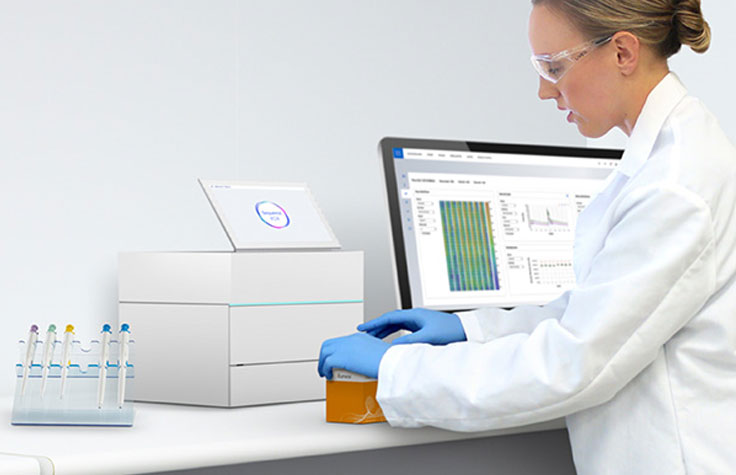Targeted Gene Sequencing Panels
Introduction to Targeted Gene Sequencing
Targeted gene sequencing panels are useful tools for analyzing specific mutations in a given sample. Focused panels contain a select set of genes or gene regions that have known or suspected associations with the disease or phenotype under study. Gene panels can be purchased with preselected content or custom designed to include genomic regions of interest.
Next-generation sequencing (NGS) offers the scalability, speed, and resolution to evaluate targeted genes of interest. Multiple genes can be assessed across many samples in parallel, saving time and reducing costs associated with running multiple separate assays. Targeted gene sequencing also produces a smaller, more manageable data set compared to broader approaches such as whole-genome sequencing, making analysis easier.
Flexible, Accessible Sequencing Instruments
Benchtop sequencing systems enable novice users to perform targeted sequencing across a range of applications.
Custom Targeted Gene Sequencing Methods
With custom designs, researchers can target regions of the genome relevant to their specific research interests. Custom targeted sequencing is ideal for examining genes in specific pathways, or for follow-up experiments from genome-wide association studies or whole-genome sequencing.
Illumina supports two methods for custom targeted gene sequencing: target enrichment and amplicon sequencing.
- Target enrichment: Regions of interest are captured by hybridization to biotinylated probes and then isolated by magnetic pulldown. Target enrichment captures 20 kb–62 Mb regions, depending on the experimental design.
- Amplicon sequencing: Regions of interest are amplified and purified using highly multiplexed oligo pools. This method allows researchers to sequence a few genes to hundreds of genes in a single run, depending on the library preparation kit used.
Featured solutions:
Illumina DNA Prep with Enrichment: A rapid, flexible targeted sequencing library prep solution for genomic DNA, tissue, blood, saliva, and FFPE samples.
Illumina Cell-Free DNA Prep with Enrichment: Fast, scalable library prep for highly sensitive mutation detection from cfDNA samples.
Illumina Custom Enrichment Panel v2: Custom targeted enrichment sequencing panels enabling a fully customized enrichment solution.
DesignStudio Software: An easy-to-use online software tool that provides dynamic feedback to optimize probe designs.
AmpliSeq for Illumina Custom Panels: Create custom targeted sequencing panels optimized for content of interest.
Benefits of Target Enrichment vs. Amplicon Sequencing
Target Enrichment |
Amplicon Sequencing |
| Larger gene content, typically > 50 genes | Smaller gene content, typically < 50 genes |
| More comprehensive profiling for all variant types | Ideal for analyzing single nucleotide variants and insertions/deletions (indels) |
| More comprehensive method, but with longer hands-on time and turnaround time* | More affordable, easier workflow |
* the turnaround time is for library prep assay time (DNA to finished library).
Advantages of Targeted Gene Sequencing
- Sequences key genes of interest to high depth (500–1000× or higher), allowing identification of rare variants
- Provides cost-effective findings for studies of disease-related genes
- Delivers accurate, easy-to-interpret results, identifying gene variants at low allele frequencies (down to 0.2%)
- Enables confident identification of causative novel or inherited mutations in a single assay
Predesigned Targeted Gene Panels
Predesigned targeted gene sequencing panels contain important genes or gene regions associated with a disease or phenotype, selected from publications and expert guidance. By focusing on the genes most likely to be involved, these panels conserve resources and minimize data analysis considerations. Predesigned NGS panels are available for research on various diseases, such as cancer, inherited disorders, cardiac conditions, and autism.

Featured system
MiSeq i100 Series
Our fastest, simplest benchtop sequencing system for targeted gene sequencing.
Featured solutions
DesignStudio Software
An easy-to-use online software tool that provides dynamic feedback to optimize probe designs.
Illumina Custom Enrichment Panel v2
Targeted custom enrichment panels, providing simple and efficient solutions for multiple targeted sequencing applications.
Illumina DNA Prep with Enrichment
A fast, flexible targeted sequencing library preparation solution for DNA.
Streamline targeted gene sequencing for oncology
This flyer highlights a simplified NGS workflow using Illumina sequencing and Pillar oncoReveal panels for fast, accurate results with seamless analysis and reporting.
Targeted Multigene Panels Enable Efficient Variant Discovery
Switching from Sanger to targeted sequencing using NGS helped researchers in Milan unlock data about variants tied to neurological and metabolic disorders
Read Interview
Related Solutions
Cancer Gene Sequencing

Targeted cancer panels focus on a select set of genes or gene regions that have known associations with cancer. The deep coverage offered by targeted resequencing studies enables high sensitivity for rare variant calling. Learn more about targeted cancer panels.
Rare Disease Variant Analysis

NGS can help scientists uncover variants linked to rare and undiagnosed disorders and investigate disease mechanisms. Learn more about rare disease genomics.
Infectious Disease Applications

As a hypothesis-free method, NGS can distinguish between infectious disease strains that differ by as little as one SNP and replace multiple tests. Learn more about NGS for infectious diseases.
Preimplantation Genetic Screening (PGS)

This approach determines the chromosomal status of an embryo by screening all 23 chromosome pairs, providing valuable insights for IVF research. Learn more about PGS.
Interested in receiving newsletters, case studies, and information on genomic analysis techniques? Enter your email address.
Additional Resources

Customized panel content to fit your study needs
Illumina Custom Enrichment Panel v2 enables the creation of complete custom or spike-in panels. Enjoy rapid delivery, high on-target enrichment, and a streamlined workflow for efficient and reliable results.
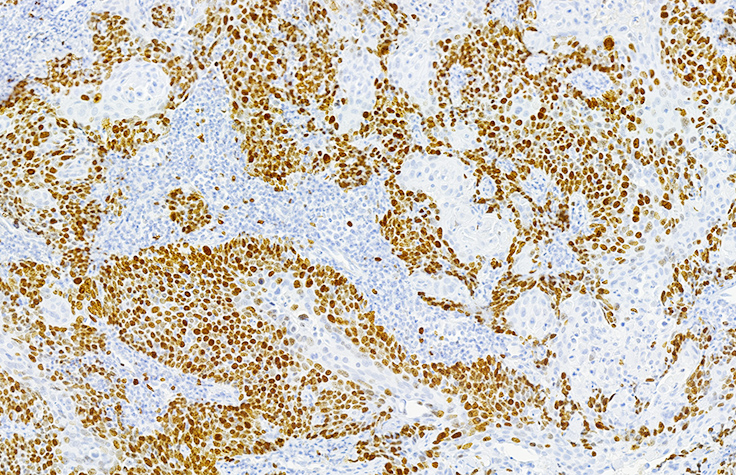
Targeted Gene Panel for Tumor Analysis
Dr Ravindra Kolhe discusses how a targeted NGS panel enables his lab to study many tumor-associated variants in a single assay.

Development of a Sequencing Panel for Autism Studies
Dr. Jonathan Pevsner discusses how his lab contributed to developing a gene panel for autism research.
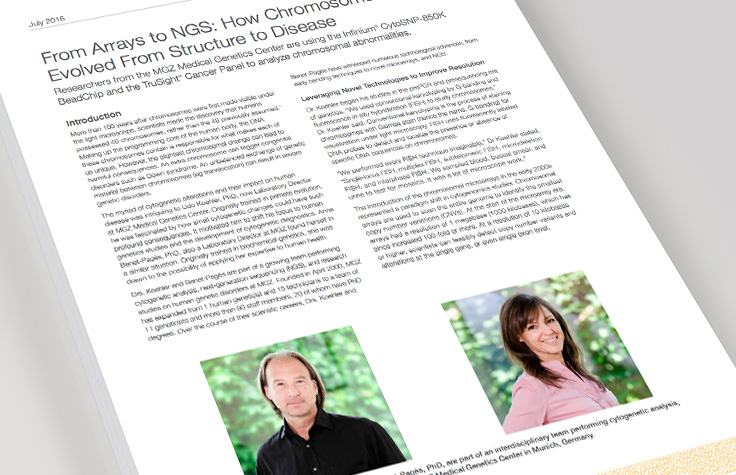
Analyzing Chromosomes Using Arrays and NGS
Researchers use arrays and a gene panel to assess chromosomal abnormalities.
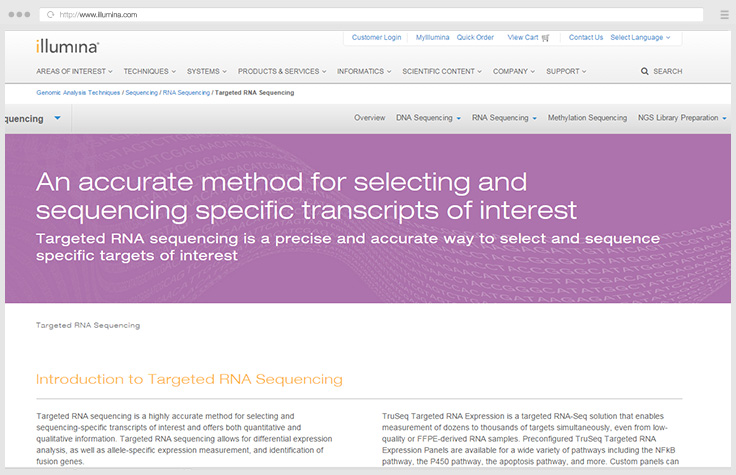
Targeted RNA Sequencing
Study the expression effects of variants identified with targeted gene sequencing.

Targeted NGS Empowers Genetic Insights
Dr. Samuel Myllykangas discusses how current and upcoming NGS innovations may impact the future of genetic testing.
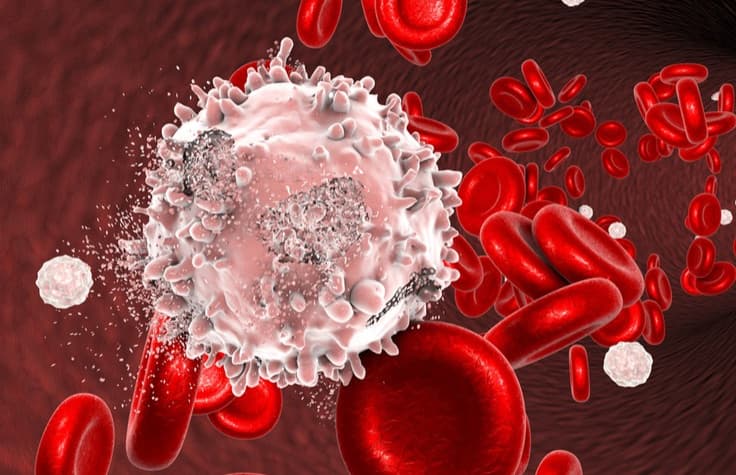
NGS to Detect Blood Cancers
Targeted NGS can identify myeloid-related genes with greater sensitivity than Sanger sequencing or cytogenetic methods.

Expand your studies with in-lab NGS
Dr. Irina Iordanescu, coordinator of the Regina Maria Genetic Center Laboratory, explains how NGS enhanced assays such as whole-exome sequencing and targeted sequencing panels for pediatric genetic disease testing and oncology. See how she used NGS to speed up and expand sample processing while reducing costs.
